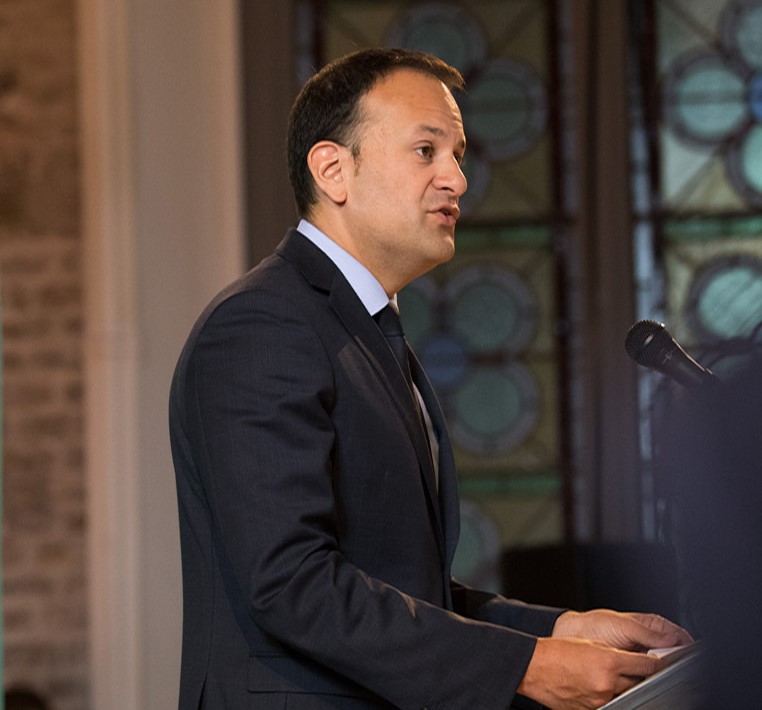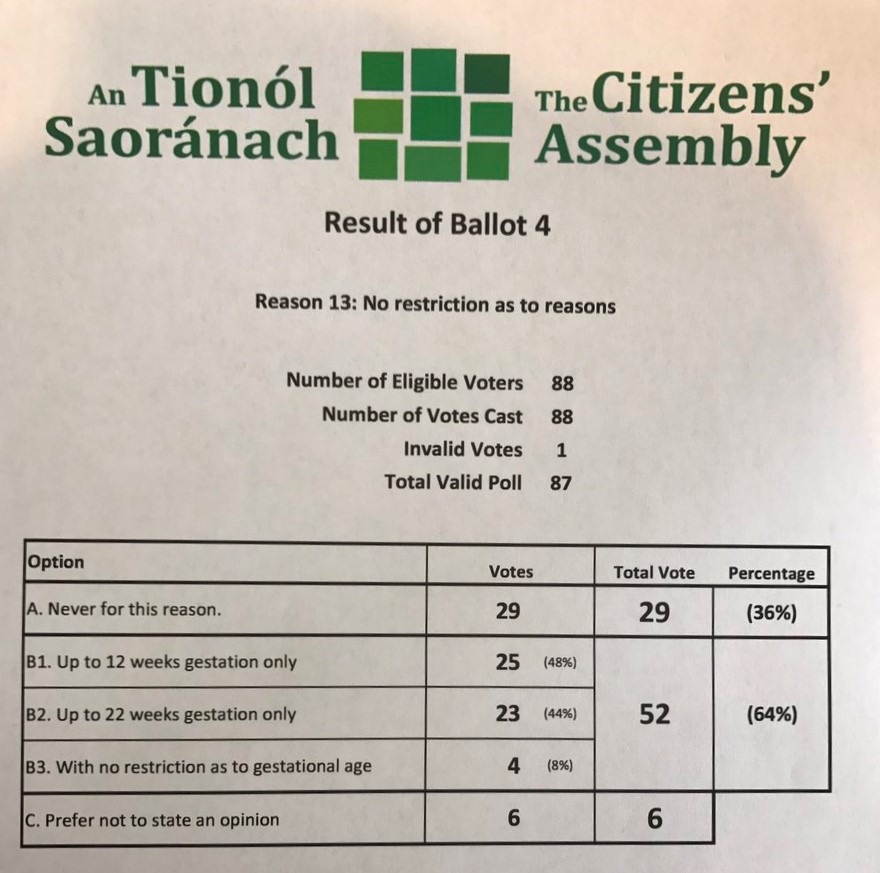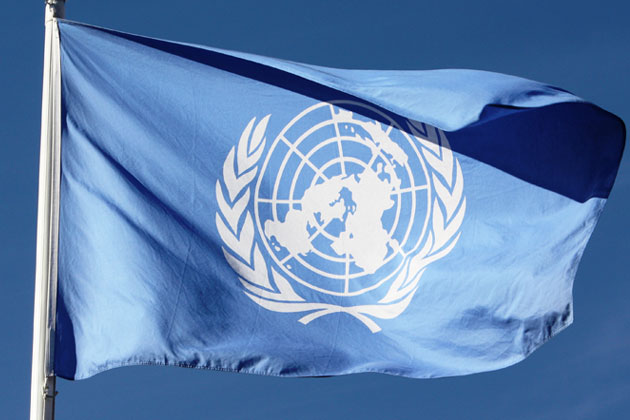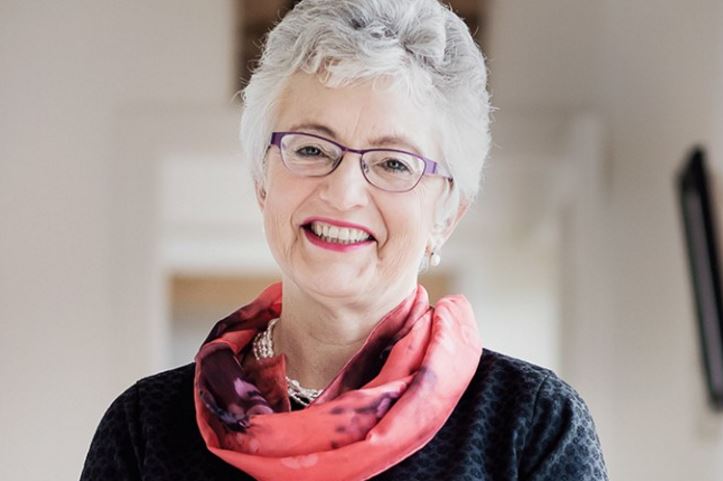
Taoiseach Leo Varadkar has confirmed that a vote on the pro-life Amendment is likely to take place in May or June of next year. He will however wait until the wording is set before deciding whether to support the measure.
His spokesman said Mr Varadkar would have to see the specifics of any proposals arising from the all-party committee which is currently considering the recommendations of the Citizens’ Assembly on abortion. In a statement released later, Mr Varadkar’s office said: “The Taoiseach has always said that his personal views should not determine the final referendum.”
The Taoiseach has previously said that he does not believe a wide-ranging liberalisation of the law, based on the recommendations of the assembly, would be passed in a referendum and he also believes the unborn should have some rights, which would conflict with an unrestricted abortion license.

Divestment of schools from church patronage should only occur where parents want it to happen, Taoiseach Leo Varadkar has told the Dáil. He said he expressed that view in a meeting with members of the Catholic church last month, which was led by Archbishop Eamon Martin. Speaking in the Dáil yesterday he said: “The issue of patronage and divestment was discussed. The Government expressed the view that it would like to see more divestment occurring but that our principal interest involves taking into the account the views of parents and that the most important thing is that divestment should only occur where the parents and prospective parents of children attending those schools want it to occur.”

A researcher has been refused permission by a UK university to study cases of people who regretted their gender reassignment and had embarked on a process of detransitioning. The proposal was rejected as it was potentially a “politically incorrect” piece of research that could lead to online criticism detrimental to the institution’s reputation. James Caspian, a psychotherapist who specialises in therapy for transgender people, wanted to conduct the research for a master’s degree in counselling and psychotherapy at Bath Spa University, but the university’s ethics sub-committee, after discussion with the dean of the relevant department, rejected his request, saying: “Engaging in a potentially ‘politically incorrect’ piece of research carries a risk to the university. Attacks on social media may not be confined to the researcher but may involve the university. . . The posting of unpleasant material on blogs or social media may be detrimental to the reputation of the university.” Caspian has since accused the University of failing to follow “the most basic tenets of academic and intellectual freedom of enquiry”.
Commenting on the case, columnist Janice Turner noted that no one could accuse Caspian of being hostile to trans people. A gay man, and a trustee of a gender educational charity, in 16 years as a counsellor he had helped hundreds of patients through their gender transitions. The topic of “detransition” however implies there should be some level of “gatekeeping” by medical professionals before a patient might change gender. Turner explains: “lately trans activists have argued that any requirement for psychological counselling is insulting. The mere fact they ‘self-identify’ as the opposite gender is proof enough. Detransition therefore is heresy. It suggests some ‘gatekeeping’ is required: that it is misguided to allow ever younger people to take sterility-inducing hormones and have life-altering surgery without professional constraints. Detransition undermines the whole push towards instant, early diagnosis demanded by groups such as Mermaids and administered by Helen Webberley, the Welsh GP interviewed this week in The Times, who is under investigation for giving cross-sex hormones to 12-year-olds.”

Jennifer Doudna invented the revolutionary gene-surgery tool called Crispr-Cas9. It enables scientists to cut out any piece of DNA a scientist wants from fledgling human embryos with ease and precision. For some biologists, this god-like editing suite for the book of life is the most important technology since the gene reader. For others, the most interesting prospect is the ability to make predictable changes to the human gene pool. For Professor Doudna, however, a molecular biologist at the University of California, Berkeley, her technological advance is giving her literal nightmares. In one dream, she was asked to explain the tool to a man sitting in the next room. When she opened the door, this man turned out to be Adolf Hitler, but with the face of a pig. “I want to understand the uses and implications of this amazing technology you have developed,” he said.
Now she is worried about the latest use of the tool, developed by researchers in the UK, who have begun removing individual genes to learn how they make the very earliest human cells tick.
In an interview with The Times, she raised concerns that Britain could allow scientists to set up “factories” churning out embryos for research, or roll back the ban on keeping them alive in the laboratory for longer than two weeks.
In the race for scientific firsts, Professor Doudna thinks the UK could end up crossing some difficult lines. “I myself am struggling with this,” she said. “I’m trying to get my mind around what’s a responsible path forward. I have to admit that I feel personally uncomfortable with the idea that there could eventually be factories pumping out lots of human embryos for the purposes of experimentation. I can’t put my finger on why but it feels like it cheapens something about human life.”

A member of the Oireachtas Committee on abortion doubts whether a major recommendation of the Citizens’ Assembly would pass in a referendum, while a leading member of the Repeal lobby has argued publicly against adopting the same recommendation. In June, the Assembly recommended not only that the Eighth amendment should be repealed in full, but that it should be replaced with a clause that “explicitly authorises the Oireachtas to legislate to address termination of pregnancy,
Speaking at the abortion committee last Wednesday Justice Mary Laffoy, who chaired the Citizens’ Assembly, said the idea of the new clause would be to immunise legislation from Constitutional challenge in the Courts and thereby bring certainty to the law. The clause would also free the Oireachtas to legislate precisely as they wish, without being limited by any implicit Constitutional protections for the unborn.
In effect, this means that the legislature would be made sovereign in matters of abortion law, and not subject to the Courts or the Constitution.
After the meeting, some TDs and senators on the 21-person committee said they now feared voters would reject the referendum, which is due to be held before next summer. A TD who did not wish to be named, for fear of alarming his party, told the Sunday Times he doubted “voters would take that leap of faith after [they rejected] the Oireachtas inquiries referendum” in 2011. He also questioned what the implications would be for the president’s right to refer new legislation to the Supreme Court.
Kate O’Connell, a Fine Gael member of the committee, said she believes Laffoy’s analysis is right, “because if a referendum happens and succeeds, we don’t want a challenge in the courts a few weeks afterwards”. However, she cautioned against drawing a conclusion until other Constitutional experts are heard. Meanwhile, Ailbhe Smyth, convener of the Coalition to Repeal the Eighth Amendment, said her organisation is opposed to inserting a substitute clause in the constitution if article 40.3.3 is repealed. “I can’t see the value or the point of a specific instruction in the constitution to tell the legislature to legislate,” Smyth said.

A referendum on the pro-life amendment will be provisionally scheduled for either May or June 2018, according to a memorandum Taoiseach Leo Varadkar is bringing to Cabinet this week. The dates of numerous referendums will be discussed including the provision protecting mothers in the home and proposals to liberalise divorce laws and remove the offence of blasphemy from the Constitution. Fine Gael TD, Josepha Madigan, said she hoped the abortion referendum would be a standalone poll, rather than one which ran alongside another vote or votes. “It’s such an emotive issue. My personal view is I think it should run alone. It’s so complex and complicated,” she said.

In her explanation of the vote on the UN Security Council Resolution 2379, US Ambassador to the UN Nikki Haley said: “It may have taken a long time to get here, but today’s resolution is a landmark. It is a major first step towards addressing the death, suffering, and injury of the victims of crimes committed by ISIS in Iraq – crimes that include genocide. These victims have been Yazidis, Christians, Shia and Sunni Muslims, and many, many more.”

Speaking to Independent.ie, Patrick McCrystal, Executive Director of HLI Ireland, said he was contacted by the hotel this week to say that the event have been called off. “The manager himself spoke to me directly of 50 pages of commentary, emails and social media, that a Facebook page had been set up opposing the conference, as well as diatribe, intimidation, upset of his staff, personal visits to the hotel and threats of protest at the hotel if conference continues. In the interest of Health and safety of his staff, he had to cancel venue”. He said it was “yet another example of censorship and is an attack on free speech”. He continued: “Who decides who may speak in Ireland? This is an attack on the very foundation of democracy in our country. These women are highly respected in their fields. Yet an angry mob have decided that only certain voices are allowed to be heard in Ireland.”
A spokeswoman for the Ashling Hotel declined to comment.

Almost two out of three mothers would prefer to stay at home to raise their children if they could afford it, a new survey has revealed. When asked “If you had the option (and money was no issue) would you prefer to be a stay at home mother?” Sixty-three percent of those surveyed told Amárach Research they would. Laura Erskine of mummypages.ie said the result didn’t surprise her and added: “If the Government were to extend the childcare subsidy to stay-at-home mothers as part of the forthcoming Budget, this would certainly help mums who are returning to work for financial reasons alone.” Catherine Walsh of the Stay at Home Parents Association welcomed the results of the study and called for the Government to extend childcare subsidies to stay-at-home parents. “We would like to see childcare subsidies extended to all parents regardless of what form of childcare they use. All care has a cost. Families who choose to care for their children in the home already face the loss of one salary and unfair taxation due to the policy of tax individualisation. We welcome the results of the study and hope the Government reconsiders the its position of subsidising formal childcare over all other forms, and recognises that parents and families want choice when it comes to childcare.”

A member of the audit committee of the Department of Children and Youth Affairs, John S Pittock, has resigned because he did not want to be associated with Minister for Children Katherine Zappone’s stance on abortion. In his resignation letter, he said, “It is a disgrace that the person to whom the Government has bizarrely given responsibility to safeguarding and protecting children, that they should promote the killing of unborn babies”. Speaking to Spirit Radio, Mr Pittock, former Chairman of Deloitte Ireland, said: “I just felt I didn’t want to be associated with her or her views or what she’s trying to promote in any way.”
The resignation was highlighted by Mattie McGrath, TD, at Wednesday’s meeting of the Oireachtas committee on abortion. In a statement released to media, he said the resignation raises very serious questions for Minister Zappone. “Clearly the extreme nature of her views and her bizarre contention that the definition of ‘child’ does not extend to the unborn regardless of its gestational age, is causing problems within the Department. We need clarification and certainty that Minister Zappone’s position on abortion and her readiness to deny fundamental rights to unborn children, despite being the Minister for Children, is not creating a conflict of interest in the operational running of her Department. No State Department should be used as a platform to advance personal ideology. They are there to act in the best interests of all citizens and not simply to give preferential status to one particular point of view,” concluded Deputy McGrath.
Ms Zappone has called for the repeal of the Eighth Amendment and legislation for a radical abortion regime and said women will not be equal otherwise. Her spokesman said the audit committee had no direct relationship with the Minister, and no function in relation to Government policy or to the views on issues that may be taken by individual Ministers.